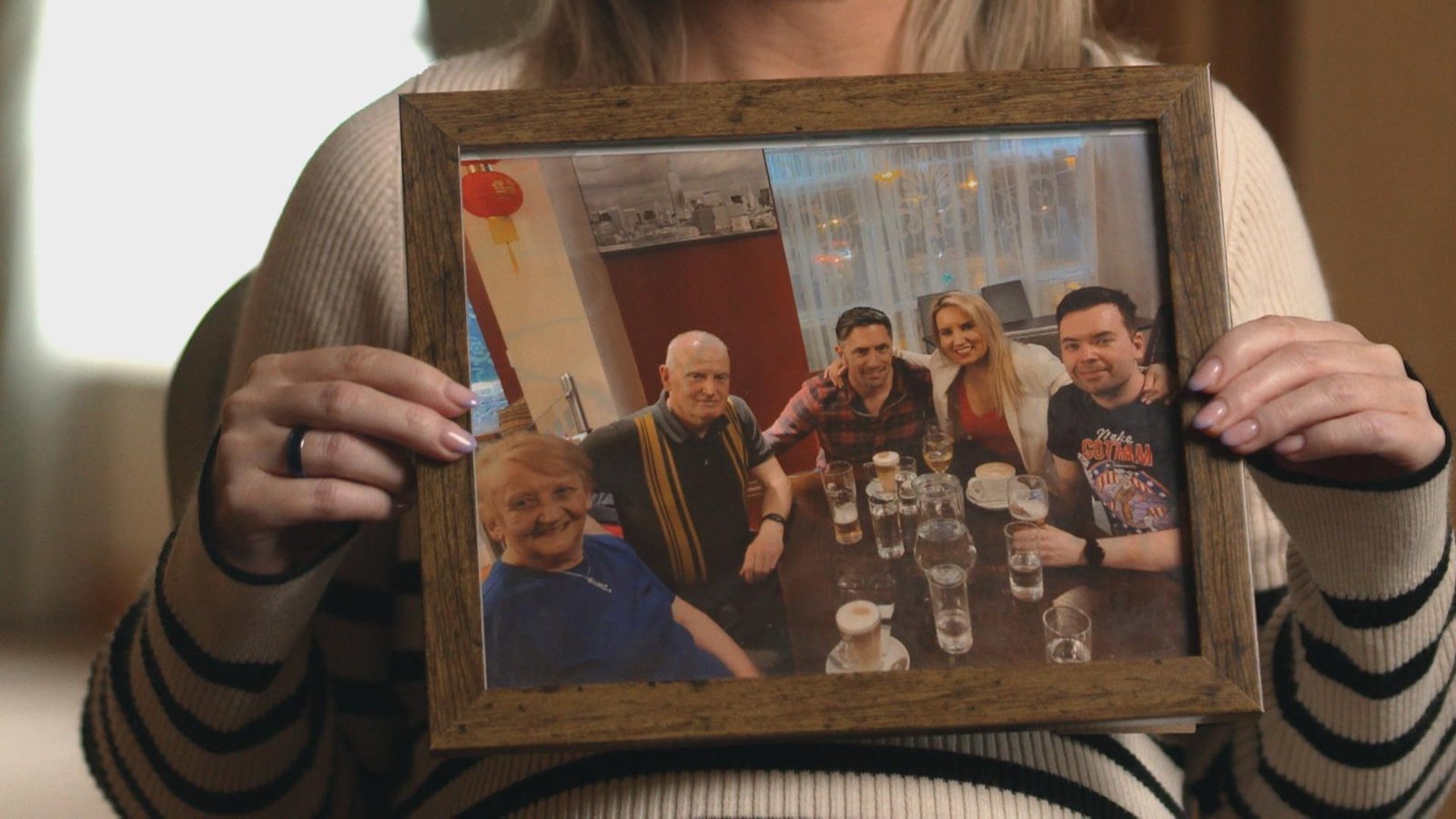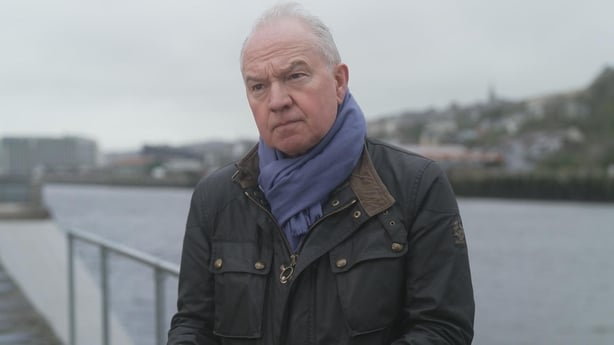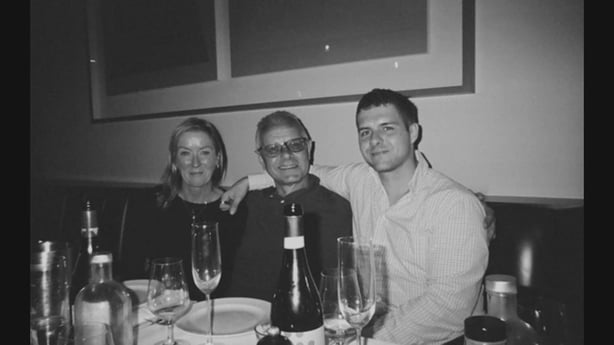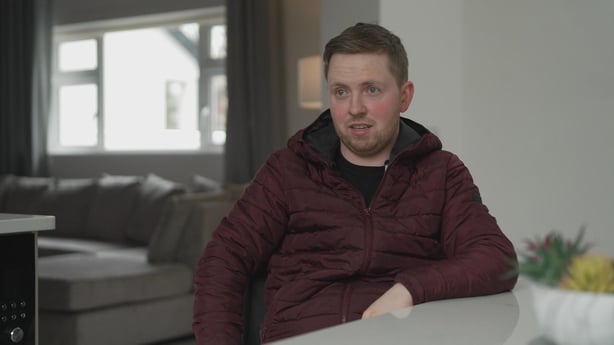World
Fatal blows: The devastating impact of one-punch attacks

The family of a man who died following a one-punch attack last year has spoken of their devastation and called for anyone who has information about the incident to contact gardaí.
Martin Lynn, 33, suffered fatal injuries when he was punched near his home at Larkhill Road in Dublin 9 on 30 July 2023.
Last week, an inquest into his death heard that the attack, which was witnessed by Martin’s friend and a taxi driver, caused him to fall to the ground which led to him suffering a traumatic brain injury.
Several arrests have been made in connection with the incident, but no one has been charged.
The inquest was also told that the garda investigation into the attack is almost complete.
“Somebody that’s capable of this type of rage and violence is still walking freely on our streets,” Martin’s sister Sharon Lynn told Prime Time.
“If anybody has any information, no matter how small, please come forward. We need justice for Martin, and we need to stop this from happening to anybody else,” Ms Lynn added.
On the night he was attacked, Martin had been socialising with friends in Dublin city centre.
At around 4.30am, Martin and his friend returned in the direction of Collins Avenue in a taxi.
He was just a few feet from the home he lived in with his parents when he was punched by a motorcyclist who was passing by the scene.
A garda appeal into the unlawful killing said that as Martin and his friend exited the taxi a motorcyclist passed by, pulled in and dismounted before approaching them.
“This individual, he pulled his bike in front of the taxi, got off his bike,” Sharon, who has given evidence at the inquest, said.
“Suddenly he (driver of the motorbike) punched Martin once in the head. He punched him with such force that Martin hit the ground, and it caused such a catastrophic brain injury instantly,” Ms Lynn said.
Sharon’s knowledge of what Martin endured is based on the witnesses who were there.
After the punch, the attacker got back on his motorbike and fled the scene.
Martin was rushed to nearby Beaumont Hospital, but never regained consciousness.
“Martin passed away three days after the attack. The attack was on a Saturday night, and Martin passed away on the Tuesday night,” Ms Lynn said.
The inquest heard last week that a post-mortem examination confirmed that Martin died as a result of traumatic brain injury with a large subdural haemorrhage.
One-punch attacks
One-punch attacks are generally characterised as assaults where the assailant strikes their victim once causing them to suffer serious injury or death.
While it’s estimated there are hundreds of people who have survived one-punch attacks in this country, and dozens who have not, one punch attacks are often only confirmed if there are witnesses.
In Martin’s case, its known that he suffered just one punch because the assault was witnessed.
Dr Chris Luke spent decades working in emergency medicine and has seen the aftermath of many one punch assaults. He believes there are many cases in Ireland that go under the radar.
“I have no doubt that there are dozens of one-punch attacks every year in the Republic that we’re missing. We have very flimsy figures. They look proactively for them in Australia. And they have a very sophisticated data capture system in terms of violence and trauma,” Dr Luke said.

In Australia, one-punch assaults have been renamed the ‘Coward’s Punch’ with specific prison terms applicable in most states.
Jennifer Schumann is Associate Professor of the Drug Intelligence Unit at the Victorian Institute of Forensic Medicine in Melbourne where this type of crime is documented.
“We’ve identified that there have been over 170 fatal coward punch assaults in Australia since 2000, and more than double the number of survivors,” Dr Schumann said.
She says most of the interest in the research into one-punch attacks has come from Ireland.
“We’re not sure whether there’s a cultural scenario there. Obviously, we’re quite similar in our cultures, in our bar culture, in our drinking culture, all those factors that are known risk factors or contributors to coward punch assault,” Dr Schumann said.
Whether it happens in Australia or Ireland, one thing common to all one-punch attacks is the random outcome. Some people, like Martin Lynn, never regain consciousness, some people recover. It is the worst kind of lottery.
Thomas Oliver, who hails from near London, was on a trip to Dublin with friends in April 2022 when he was attacked.
He was walking close to the junction of Fleet Street and Westmoreland Street in the early hours of the morning when a young man got out of a car and punched him without warning.
The attacker did not know Thomas.
Thomas’s father Lee hasn’t watched the CCTV that captured the incident, but he knows what happened and the harrowing effects.
“I believe it was a haymaker type punch. There was a lot of force behind it,” Mr Oliver told Prime Time.
“Thomas was basically knocked out straight away and went down like a tree that had been felled. And he then banged his head on the pavement,” Mr Oliver said.
Thomas’s father has vivid memories of flying to Dublin with his wife and daughter not knowing what condition his son was in.
Thomas was initially taken to St James’s Hospital before being transferred to the Neurological Unit at Beaumont Hospital where, having been placed in an induced coma, he spent a number of weeks in intensive care. His attacker was jailed for four-and-a-half years.
Thomas eventually recovered from his physical injuries, but his father says his son doesn’t talk about what happened to him and is very unlikely to ever visit Dublin again.

Lasting impact
Like Thomas Oliver, victims of one-punch attacks can recover from their physical injuries but there can be a long-term psychological impact too according to Dr Schumann.
“We found what was really concerning were some of the things that aren’t often reported in survivors of coward punch assault. And that included things like PTSD, fear for safety, chronic anxiety in around 36% of survivors, and significant behavioral impairments in around one in five cases,” Dr Schumann said.
Dr Chris Luke agrees.
“For every death, there’s probably dozens of people who are left with brain injury. They may be afraid to go out for for months or years afterwards. Or they can be left with all sorts of problems with eyesight, problems with memory. So, the deaths are tragically just the tip of the iceberg,” Dr Luke said.
Dave Scannell was attacked at random after a night out with friends in Listowel, Co Kerry in September 2019.
“It was a Thursday, I was just out with my usual friend group, we went to a couple of bars,” Mr Scannell told Prime Time.
“Things finished up at 2am and I was waiting outside talking to my friend. I was saying to him was he going to go straight home or was he going to go for a burger and chips across the road. And all of a sudden everything was turned completely black,” Mr Scannell said.
Dave had been punched by a man who came from behind and hit him on the left side of his head.
He struck his head on the ground, suffered a fractured nose and depressed eye socket but didn’t lose consciousness.
While Dave has recovered physically from his injuries, the random attack has left a lasting impact on him.
“I was so angry that a stranger that I never had a problem with would do this to me. I was so cross. I did a lot of counselling and I definitely have the anger, not under control, but better,” Dave said.
When the person responsible was given the benefit of the Probation Act after pleading guilty (meaning he was left without a criminal conviction) Dave pursued a civil action against his attacker, which was settled in March this year for over €23,000, some of which Dave has given to charity.
“If I could go back to that day and stop that from ever happening, not having to love with the trauma, I’d be very happy to do it. For the anxiety I have to live with you couldn’t put a price on it. If I was given €1 million it still wouldn’t be good enough. I was a totally different person before it happened,” Dave said.
“Anyone doing one of these one punch assaults, a person is playing Russian roulette with another person’s life.”

Unlike Dave, for Martin Lynn and his family, there was no recovery of any kind.
Detective Inspector James McDermott told the Coroner at the inquest into his death last week that a file on Martin’s case would be sent to the Director of Public Prosecutions within three or four weeks, and the inquest was adjourned.
Anyone with information on Martin’s unsolved killing is urged to contact the Garda Confidential Line on 1800 666 111.
Reporter Barry Cummins and producer Lucinda Glynn’s report will broadcast on the 18 June edition of Prime Time on RTÉ One and RTÉ Player.










